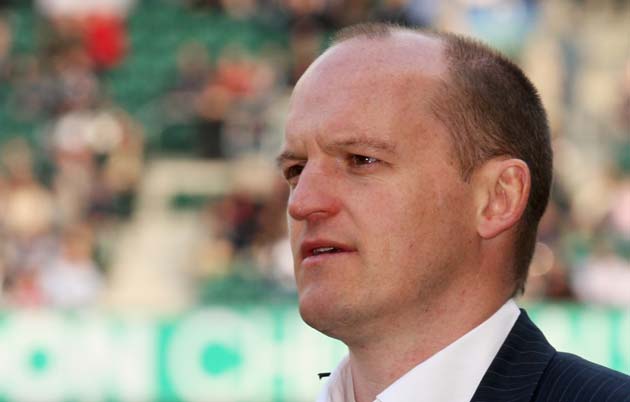Townsend backs Scotland to improve
As one of the most talented players Scotland has ever produced, Gregor Townsend was never afraid of taking a gamble. Now he's bringing that creativity to coaching Scotland's backs

The man sitting in row Q of the main stand at Murrayfield on Six Nations afternoons this season might have looked almost as lean and lithe as some of the players on the field.
But you shouldn't be fooled, because Gregor Townsend isn't. He's happy to say his playing days are over and he's enjoying coaching Scotland's backs.
Scotland were a major disappointment in the Six Nations, having only a solitary win over Italy to show for their efforts, a record which prompted the resignation of head coach Frank Hadden at the beginning of April.
But there were signs that the Scottish back-line which, in past years, has been about as potent as a politician in a financial crisis, was finally starting to look capable of significant deeds in Test rugby, with the likes of Max and Thom Evans adding a much needed injection of pace and attacking endeavour.
Townsend was always a player with a considerable quantity of cerebral matter and the effect of his coaching is already confirming that prognosis. Talented, inventive and delightfully unconventional as a player, he adhered to the creed that to try things on the field contained risk and, quite often, risk-taking can be expensive. Yet when it works, it is glorious. The sleight of hand and delicious sway of the hips followed by release of the ball out of a tackle by which he freed Gavin Hastings for that famous try by the posts at Parc des Princes, Paris, in 1995 enabling Scotland to win in the French capital for the first time in years, was Townsend at his best. He never panicked under pressure, retained his composure and always kept on thinking. He is trying to instil the same values into the Scottish backs.
Intriguingly, he scorns the general belief that space is becoming an endangered commodity in the modern game. "If you can see the space and execute it, the space is definitely still there," he says. "Look at the best teams in the world, like New Zealand. People said they didn't have their strongest side for the tour of the northern hemisphere last autumn but they easily beat teams in this part of the world.
"One of the reasons for that was they found space. If you are good enough, you can find it and if you play at pace and your fundamental basic skills are good, you will always have the opposition on the back foot."
Townsend straddled the amateur/professional dividing line. He played amateur rugby until 23, loved and revered its comradeship and sense of fun. But when professionalism came, he adapted smoothly to its rigours and demands.
He played professionally for another 12 years, and had the intellectual stimulus to try the game in different countries (England, France, South Africa); always a sign of the thinking player.
In all, he had 11 years of international rugby and was a prominent contributor to the success of the 1997 Lions in South Africa.
What does he make of the Scottish back line? "The players are improving but they have to learn things like holding onto the ball at the right times, waiting for support," he says. "I am enjoying working with them, seeing them develop. I am learning new things and being involved in the Six Nations again not as a player but coach was a great thrill."
And the game now? As he says, it is always evolving. Sure, it has changed enormously even in the six years since he stopped playing. And yet he sees some things returning, like the careful employment of little kicks, the chip through and grubber kick to break the stranglehold of the modern defences.
"These things were there 10 years ago; there were certain ways of playing," he says. "The kicking game is changing all the time and it is all based on trying to find space behind the opposition defence by whatever means.
"Defences are very strong, very organised and players are bigger now. Finding space is more and more difficult but it's as well to remember that you're not playing 25 players. It's still just the 15."
If ever he'd allowed his mind to wander and wonder about playing in the modern game, this articulate Scot needs only to listen to his body. "I realised it wouldn't last five minutes on an international field these days," is his frank assessment of the physicality of modern day rugby.
"Already, I am starting to feel the effects of 11 years of international rugby. I've had a stiff neck and I get sore knees and sometimes it's my back. The only reason is, I played rugby for so long. Anyone who did will have these bits of pain throughout their body: there is a toll to pay. In one year, I played 40 games but thankfully they play less now. Yet the memories are worth it."
So he sits contentedly in the stand at Murrayfield these days and relaxes. Curious word that, for a coach. But he does.
"You watch and study the play hoping to see something you can pick up on at half time with the players," he says. "I don't mind that, I enjoy the view. I am relaxed enough because I enjoy the game. I certainly don't feel I want to be out there anymore."
Join our commenting forum
Join thought-provoking conversations, follow other Independent readers and see their replies
Comments
Bookmark popover
Removed from bookmarks